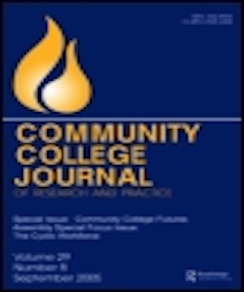Community colleges are historically known for welcoming and enrolling diverse student populations based on students’ economic status, racial/ethnic background, and academic profile among others. In a recent article (subscription may be required) I published with my colleagues Jason Garvey and Susan Rankin, we examined how welcoming community colleges are for Lesbian, Gay, Bisexual, Transgendered, and Queer (LGBTQ) students.
Knowing that students’ perceptions of campus climate are an important aspect of students’ collegiate experience, we used data from a national study to better understand what factors predicted students’ perception of campus climate. After controlling for demographic variables, our model showed that the strongest predictor of students’ overall campus climate was their perception of classroom climate (e.g., perceived safety and comfort, feeling welcomed in the classroom, and LGBTQ inclusive curriculum); campus resources and resource use were not predictive in our model. These results are insightful because they point to the importance of community colleges’ student experience in the classroom and in particular the role of faculty.
In the article, we offer some practical steps that community colleges can take to support LGBTQ students:
- Assess curriculum diversity to determine how LGBTQ students are represented in the curriculum
- Determine support and training available to faculty so they are familiar with and better understand LGBTQ issues and students
- Conduct climate and resource assessments for LGBTQ individuals
- Benchmark your college against other colleges and universities using Campus Pride’s Campus Climate Index to determine what services and supports can be provided to your LGBTQ students
A safe, welcoming, and inviting campus and classroom climate are important to learning for any group of students, particularly marginalized student groups. I invite you to share how your college is supporting LGBTQ students!
Jason L. Taylor is an assistant professor in the Department of Educational Leadership and Policy at the University of Utah and co-principal investigator of Credit When It’s Due (CWID) Research at OCCRL.
